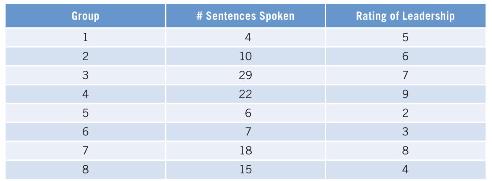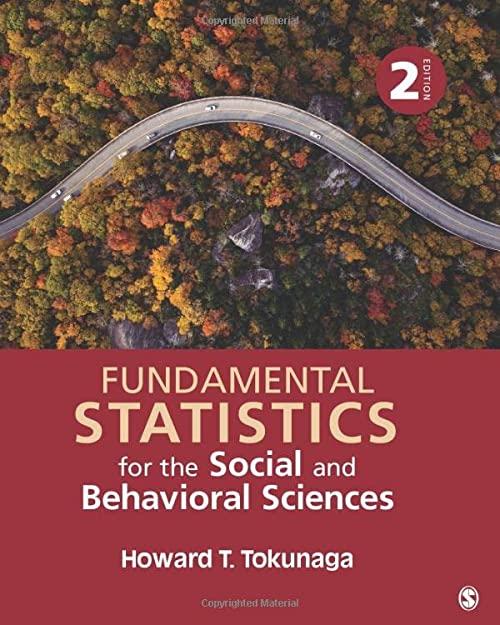What makes a person a leader? A social psychologist hypothesizes that the extent to which people are
Question:
What makes a person a "leader"? A social psychologist hypothesizes that the extent to which people are perceived to be leaders is positively related to the amount of talking they do, regardless of what they are actually saying. She conducts an experiment in which groups of participants solve a problem together. One of the participants in each group is a confederate who speaks a different number of sentences for different groups, half of which are designed to help the group solve the problem and half of which are not helpful. Following the group work, the confederate is rated by the other participants on his leadership ability \((1=\) low, \(10=\) high \()\). The following data represent the findings of this fictional researcher.
a. Draw a scatterplot of the data.
b. Calculate descriptive statistics (the mean and standard deviation) for the two variables.
c. State the null and alternative hypotheses \(\left(\mathrm{H}_{0}\right.\) and \(\left.\mathrm{H}_{1}\right)\) (use a nondirectional \(\mathrm{H}_{1}\) ).
d. Make a decision about the null hypothesis.
(1) Calculate the degrees of freedom ( \(d f\) ).
(2) Set alpha ( \(\alpha\) ), identify the critical values, and state a decision rule.
(3) Calculate a statistic: Pearson correlation \((r)\).
(4) Make a decision whether to reject the null hypothesis.
(5) Determine the level of significance.
(6) Calculate a measure of effect size \(\left(r^{2}\right)\).
e. Draw a conclusion from the analysis.
f. Relate the result of the analysis to the research hypothesis.
Step by Step Answer:

Fundamental Statistics For The Social And Behavioral Sciences
ISBN: 9781506377476
2nd Edition
Authors: Howard T Tokunaga




